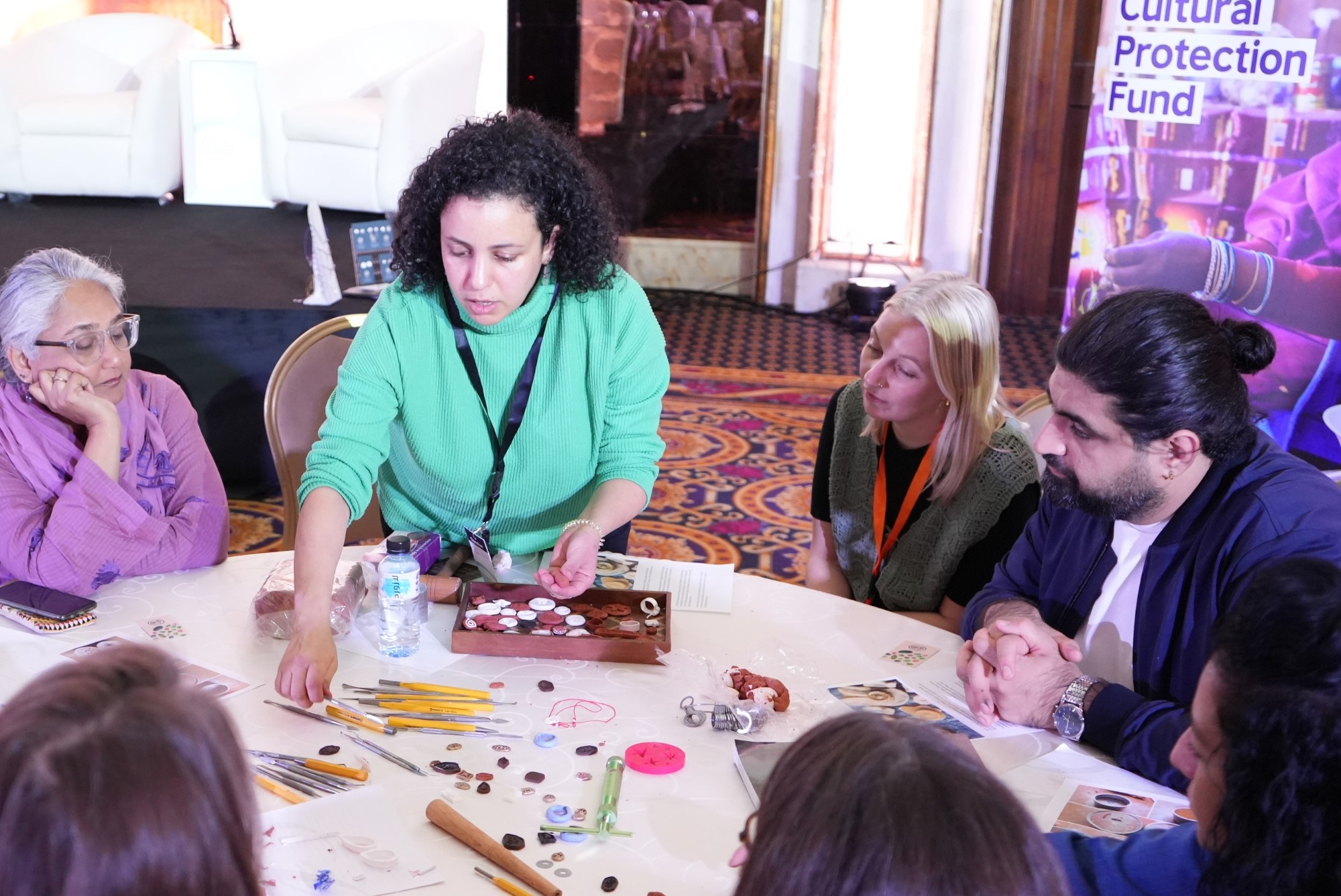Last week, I popped in to the kick-off session for Let’s Get Real: AI, our latest collaborative action research programme tackling the eye-popping opportunities, risks and dilemmas AI presents. Just a few hours in, it was clear that problems were already being shared and halved, and good ideas multiplying across the cohort of 16 organisations. The collective sense of possibility was palpable.
It reminded me of Clore Leadership’s recent World of work/Leadership Now research which highlights the existential importance of embracing experimentation and taking calculated risks.
It’s not a coincidence that four of the nine emerging recommendations call for a shared approach to learning and support, including: strengthening peer networks to facilitate knowledge sharing, capacity building and collective problem solving.
This chimes with our experience that structured collaborative learning with the support of peers is a powerful conduit for innovation and change. As a result, we have increased efforts to create new opportunities for peer learning and experimenting with new models for channelling its power beyond the Let’s Get Real format.
Global peer learning programme
Take Connecting Cultural Heritage with the British Council Cultural Protection Fund. A year-long virtual global peer learning programme, it has connected cultural heritage professionals working in challenging environments from 13 countries across the Global South – exclusively digitally.
The programme started with a question: in a newly Zoom-enabled world, how could people working at the grassroots but in very different situations support one another? Was that even possible, in the arid atmosphere of the online meeting?
Despite these anxieties, we quickly learned to trust the power of being with peers. It shouldn’t have surprised us that committed, ingenious people, used to finding solutions against the odds, will get a lot out of sharing their experiences.
Conversations about the same-but-different challenges of preserving indigenous knowledge in the face of globalisation, or digitisation when the electricity goes down regularly, or political hostility, can be sustaining when shared across borders. Participants reported discovering new perspectives on old problems, unexpected ideas and inspiration, and a revitalising sense of mutuality and validation.
A safe reflective space
What they found most valuable, however, was hearing about each other’s real-world practice and the truth about hurdles faced in a non-judgemental environment of mutual trust. This offered a unique lens for reflection about their own experience, past, present and future.
Although a very different programme, this corroborates learning from Let’s Get Real. As my colleague Anra Kennedy observed in her recent article: “Cultural practitioners need space to step outside their reactive everyday modes and interrogate their practice honestly, with ‘permission’ to try new tactics or investigate hunches.
“Cultural leaders need to understand and apply the lessons emerging from this reflective process.”This need goes far beyond the challenges of interacting with new technology.
Powered by the people
To realise these benefits, the peer learning experience needs to be rooted in the right values, carefully structured and sensitively managed. As programme designers and facilitators of Connecting Cultural Heritage, we learned a lot of lessons, many of which we thought it might be useful to share in this International Online Peer Learning Blueprint.
Our job as facilitators was not to direct, but to enable, hold and adapt a framework for participants’ exchange. There were three key people-centred features of the design:
- The programme content was co-designed with participants within a clear programme structure
- Participants’ own experience formed the core of the content, rather than being “expert-led”
- Perhaps the most critical factor, we baked in time and space for participants to get know each other, and for empathy, kindness and generosity to build.
This form of non-hierarchical learning is distinctive, with different benefits from expert-led training, but relying exclusively on peers for content can take a leap of faith. As time went on, our confidence in the collective grew, and we learned to trust the process.
Facing the future together
If not quite a panacea for all the tribulations facing the culture sector, peer learning is in our eyes one of the best ways of sharing the load and facing the future together.
We’re also applying similar principles in new combination for the Alliance for Socially Engaged Arts Fellowship, a groundbreaking new leadership programme commissioned by the Network of European Foundations. We also have more programmes in the pipeline taking this approach to tackling impact and evaluation, and audience development.
If these topics grab your interest, or you’d be willing to share your own experience of peer learning with others working in this field, please do get in touch.
News of all peer learning opportunities as they arise, including our annual Let’s Get Real conference, can be found at theaudienceagency.org or by joining our mailing list.
This article was originally published on Arts Professional on 15 May 2025.



